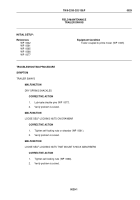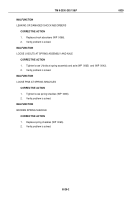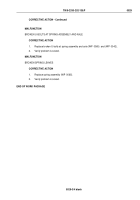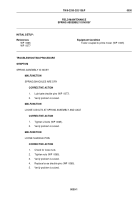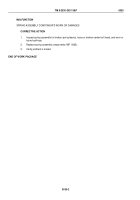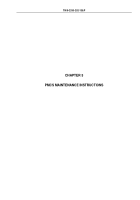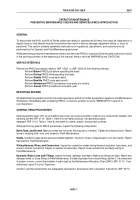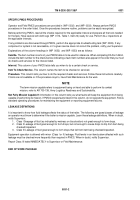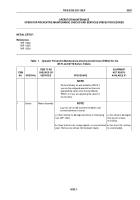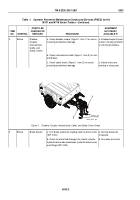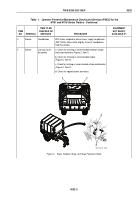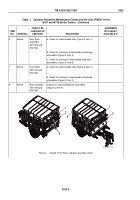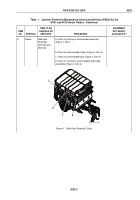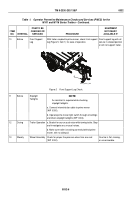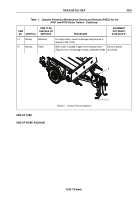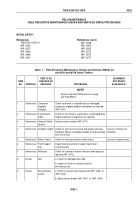TM-9-2330-202-13-P - Page 144 of 552
SPECIFIC PMCS PROCEDURES
Operator and Field PMCS procedures are provided in (WP
0032)
and (WP
0033). Always perform PMCS
procedures in the order listed. Once the procedures become routine, problems can be easily recognized.
Before performing PMCS, read all the checks required for the applicable interval and prepare all the tools needed
for the task. Have several soft cloth rags (WP
0114, Table 1, Item 24) ready for use. Perform ALL inspections at
the applicable intervals.
If any problems are discovered through PMCS, perform the appropriate troubleshooting task (WP
0009). If any
component or system is not serviceable, or if a given service does not correct the problem, notify your Supervisor.
Explanations of the column headings in (WP
0032)
and (WP
0033) are as follows:
Item No.
The item number column of your PMCS table is to be used for reference. When completing DA Form 2404,
include the item number for the check/service indicating a fault. Item numbers also appear in the order that you must
do checks and services for the interval listed.
Interval.
This column of your PMCS table tells you when to do a certain check or service.
Item To Check/Service.
This column names the item to be checked or serviced.
Procedure.
This column tells you how to do the required checks and services. Follow these instructions carefully.
If tools are not available or if the procedure says to, have Field Maintenance do the work.
NOTE
The term mission capable refers to equipment being on hand and able to perform its combat
mission, refer to AR 700-138, Army Logistics Readiness and Sustainability.
Not Fully Mission Capable If:
Information in this column tells you what faults will keep the equipment from being
capable of performing its mission. If PMCS reveals faults listed in this column, do not operate the equipment. Follow
standard operating procedures for maintaining the equipment or reporting equipment failures.
LEAKAGE DEFINITIONS
It is important to know how fluid leakage affects the status of the trailer. The following are types/classes of leakage
an operator must know to determine if the trailer is mission capable. Learn these leakage definitions. When in doubt,
notify Supervisor.
1.
Class I Seepage of fluid (as indicated by wetness or discoloration) not great enough to form drops.
2.
Class II Leakage of fluid great enough to form drops, but not enough to cause drops to drip from item being
checked/inspected.
3.
Class III Leakage of fluid great enough to form drops that fall from item being checked/inspected.
Equipment operation is allowed with minor (Class I or II) leakage. Fluid levels in an item/system affected with such
leakage must be checked more frequently than required in PMCS. When in doubt, notify Supervisor.
Report Class III leaks IMMEDIATELY to Supervisor or Field Maintenance.
END OF WORK PACKAGE
TM 9-2330-202-13&P
0031
0031-2
Back to Top


